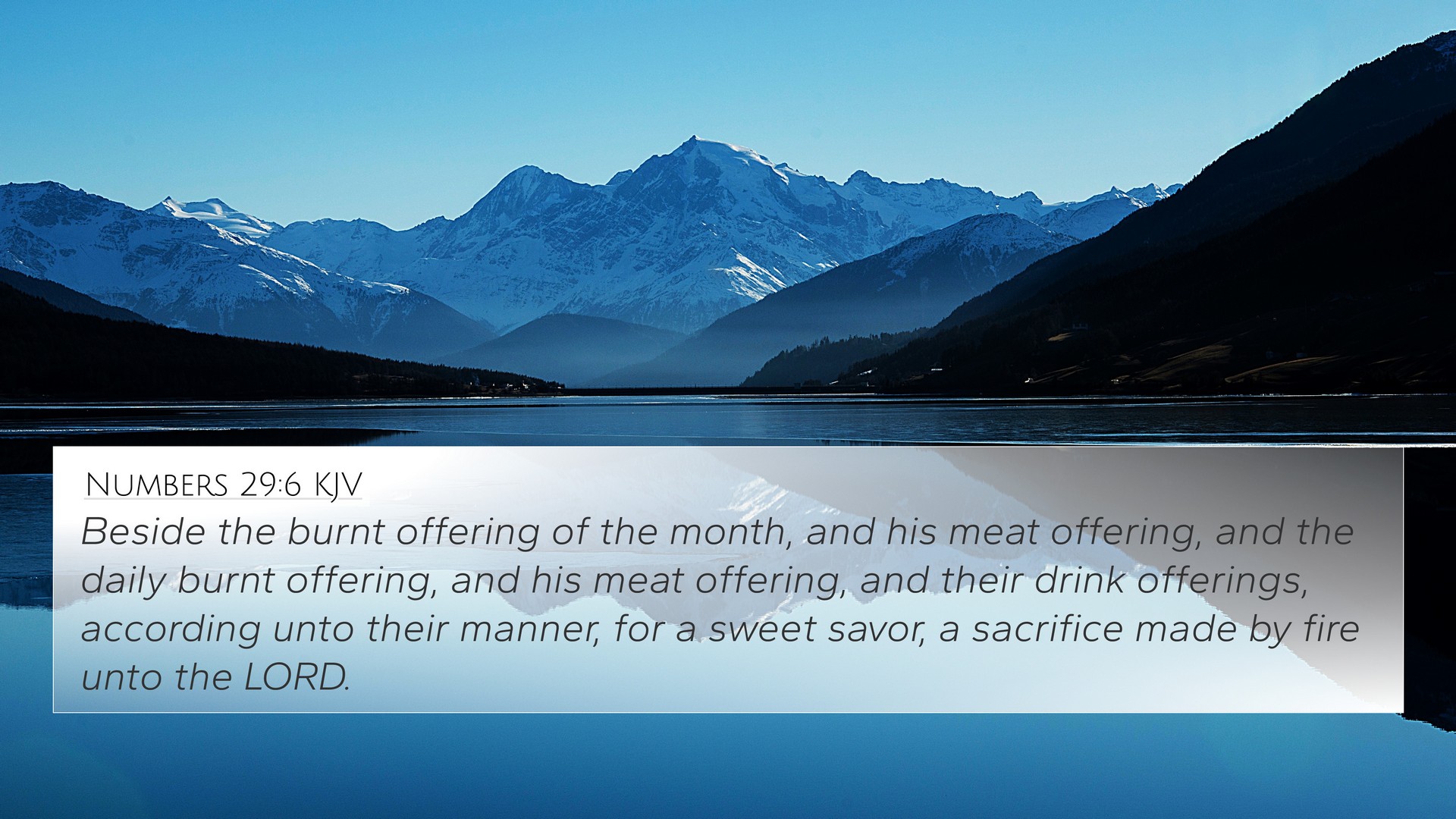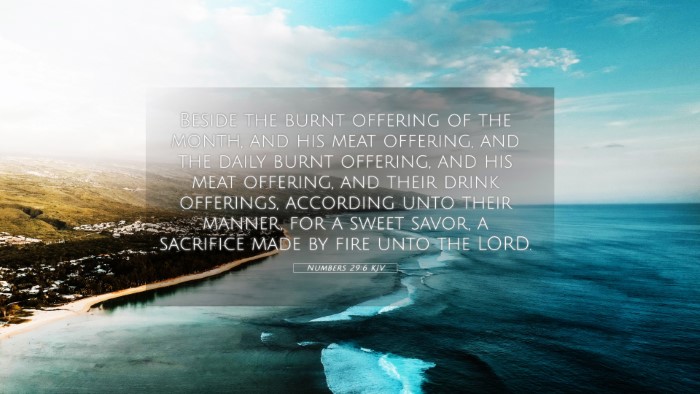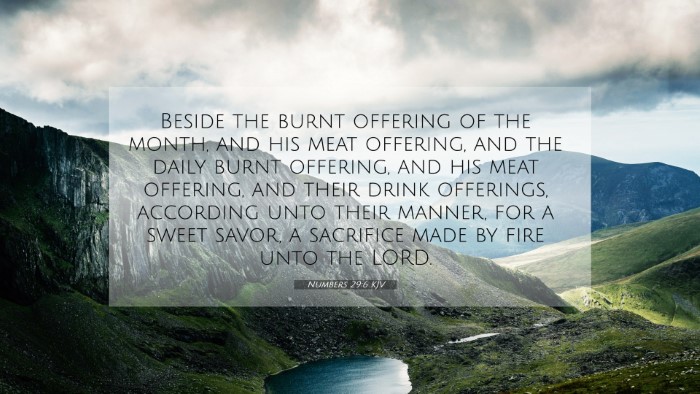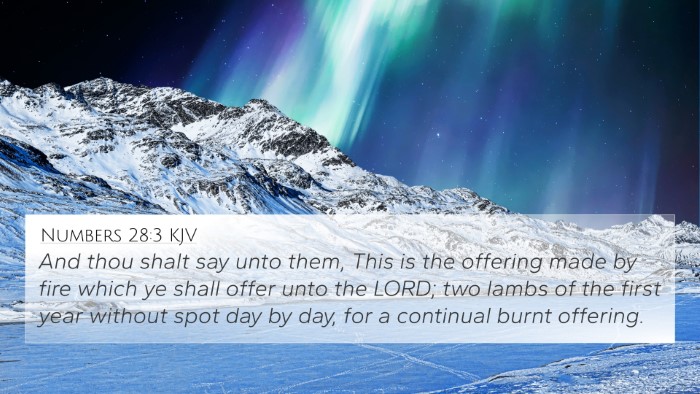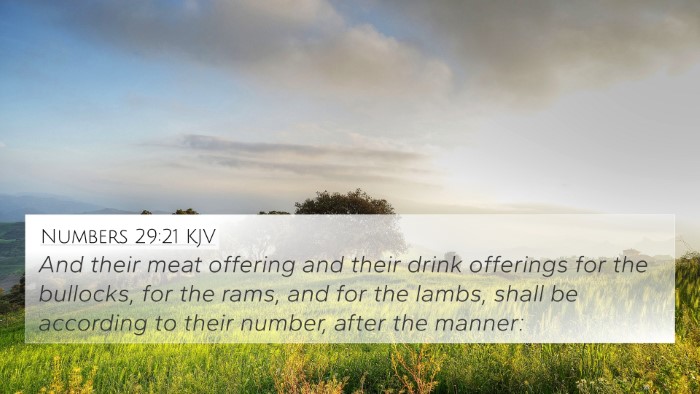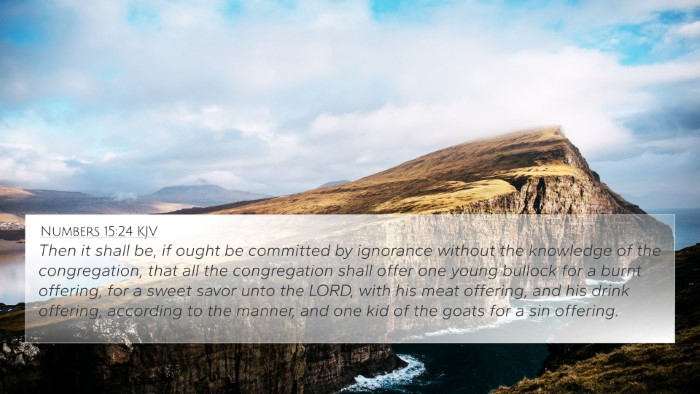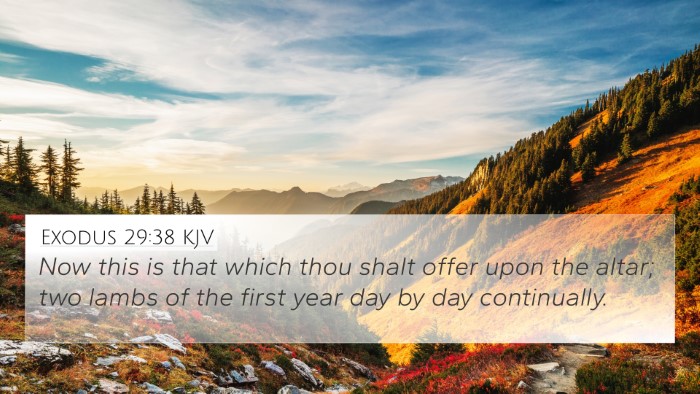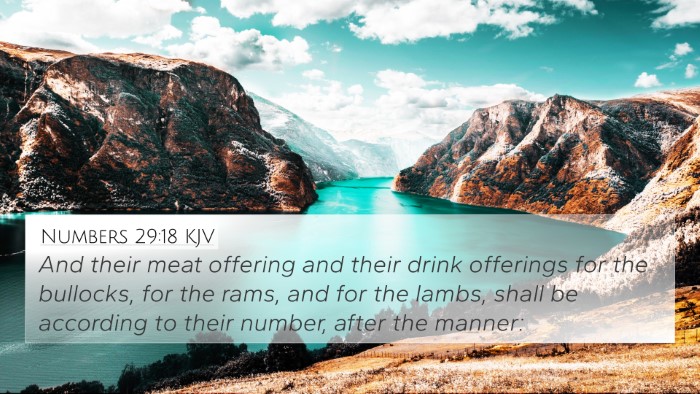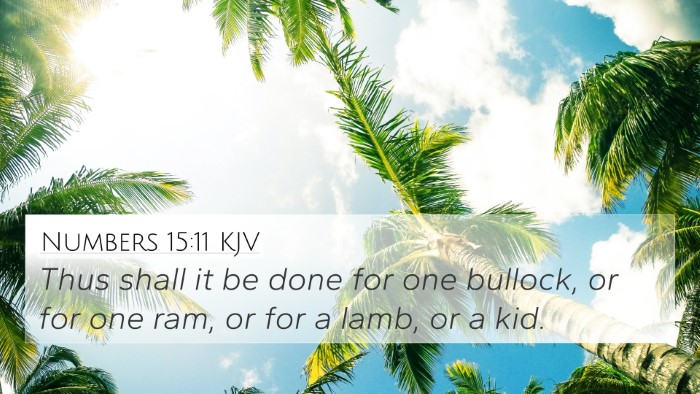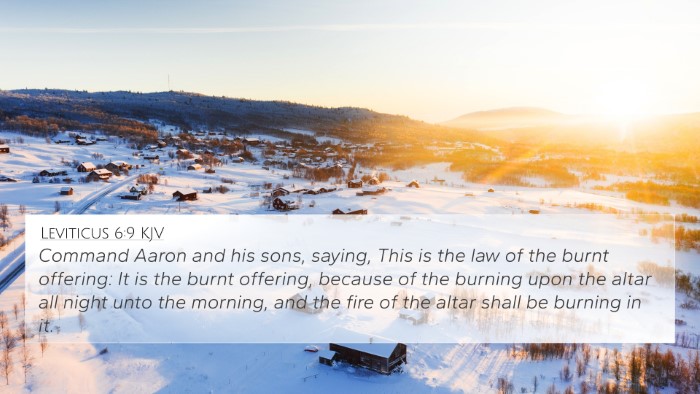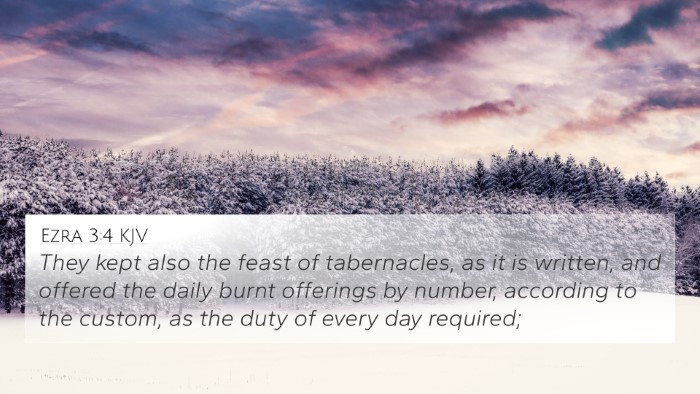Understanding Numbers 29:6
Numbers 29:6 states: "Beside the burnt offering of the month, and his meat offering, and the daily burnt offering, and his meat offering, and their drink offerings, according unto their manner, for a sweet savour, a sacrifice made by fire unto the LORD."
This verse is part of the instructions given to the Israelites regarding the offerings and sacrifices they were to present to God during the Feast of Tabernacles. This offering system symbolizes the covenant relationship between God and His people, highlighting the importance of following His commandments and offering praise.
Interpretation and Thematic Analysis
The following insights incorporate thoughts from various public domain commentaries:
-
Matthew Henry:
Henry emphasizes the periodical nature of these sacrifices, indicating that they were designed to keep the Israelites constantly reminded of God's goodness throughout the year. The daily burnt offerings represent continual worship and dedication to God, which is crucial for spiritual growth and maintaining a relationship with Him.
-
Albert Barnes:
Barnes highlights the collective aspect of these offerings during each festival. They serve not only as individual acts of worship but also as community reminders of God’s faithfulness. He also notes that the offerings "for a sweet savour" indicate that they were pleasing to God, affirming the goodness of the worshipers’ intentions.
-
Adam Clarke:
Clarke points out that the regularity of these offerings reflects the structured approach to worship in the Old Testament. He notes how each element of the offerings (meat and drink) signifies a deeper reliance on God for sustenance and blessing in agricultural societies.
Cross-References to Numbers 29:6
In studying Numbers 29:6, one may find valuable insights in related Bible verses, enriching the understanding through thematic connections. Here are some cross-references:
- Exodus 29:38-42: Instructions for daily offerings, establishing a pattern of worship.
- Leviticus 23:36: Details on offerings during specific feasts, linking them to God’s holy days.
- Psalm 51:17: The idea of a “broken spirit” correlating with God’s desire for sincerity in offerings.
- Isaiah 1:11-17: A commentary on the insufficiency of empty rituals, emphasizing the need for true repentance.
- Hebrews 10:1-4: The contrast of Old Testament sacrifices and the once-for-all sacrifice of Jesus Christ.
- Romans 12:1: The call to present our own bodies as living sacrifices, echoing the dedication of offerings.
- 1 Peter 2:5: Believers are described as spiritual sacrifices, linking back to the essence of worship and offering.
Thematic Connections
These verses collectively reflect the notion of sacrifice—be it of animals or oneself as a form of worship. They provide a framework for understanding not just the historical context of worship in ancient Israel but also for interpreting the spiritual sacrifices called for in the New Testament, showcasing the continuum of God’s redemptive plan.
Conclusion
Numbers 29:6 serves as a reminder of the necessity and significance of worship through offerings, both in the Old Testament sacrificial system and the ongoing call for believers today. Engaging with scripture through cross-referencing deepens the understanding of God’s expectations, His nature, and our response to His grace.
This analysis can serve as a guide for those looking to connect different passages within the Bible, highlighting the importance of understanding the interconnectedness of scriptural texts. Utilizing tools for Bible cross-referencing enhances one’s study, offering a deeper look at parallels and themes across the scriptures.
